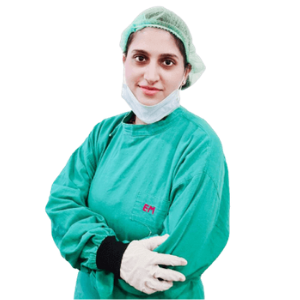Neuro-Ophthalmology
Neuro-Ophthalmology is a specialization that blends the fields of neurology and ophthalmology. Usually dealing with complicated systemic diseases that have signed in the visual system. Neuro-ophthalmologists are liable for the diagnosis and control of complex systemic diseases of the nervous system. Further, that harms vision, eye movements, and alignment, also pupillary reflexes. The Neuro-ophthalmology department handles a high amount of patients with a broad range of symptoms every day including :
- Vision loss
- Double vision
- Drooping of eyes
- Visual field defects
- Headache
- Eyelid
- Facial disorders
Book Appointment
When Should You Visit Your Neuro-Ophthalmologist?
Mostly the eye doctor will recommend one visit an expert in Neuro-Ophthalmology following a comprehensive eye test. In case one wants proper care. Usually, the symptoms that indicate such a referral involve those linked with optic nerve disease or disorders of the visual pathway. The nervous system part that attaches the eyes to the brain. Additional reasons can be the diseases harming the pupils of the eye and some kinds of squint, particularly paralytic.
Common Symptoms That Require Attention
The common symptoms that can imply a neuro-ophthalmological problem involve:
- Immediate reduction or loss of vision
- Visual hallucinations
- Myasthenia gravis
- Unequal pupil size
- Transient visual loss
- Immediate transient loss of vision -called transient ischemic attack or eye stroke
- Diplopia or Double vision
- Visual Field Deficiencies
- Failure to tolerate bright light
- Squint or strabismus- particularly adult onset
- Sudden onset of problems in recognizing colors
- Intractable headaches
- Pupillary abnormalities
General Tests For Diagnosis Of Neuro-Ophthalmology Diseases
A complete eye test is always the aid of the disease diagnosis. In enhancement to this, one’s doctor will further recommend certain specific tests to decide and plan treatment. The test one should go for are:
- Orthoptic evaluation
- Diplopia charting
- Optical coherence tomography of the optic nerve head
- Evaluation of variance sensitivity and color vision
- Neurological visual fields screening
- Evaluation of ocular movements
What One Can Expect Throughout The Evaluation?
The neuro-ophthalmologic evaluation is one of the general tests one will experience. It may take some hours to finish. One will be questioned to give an account of his/her prevailing problem and link their complete medical history and medication allergies.
- One will have an entire eye test. This can involve an examination of peripheral vision. That is called a visual field test.
- Also, can have a partial or full neurologic exam to test one’s power, sensation, and coordination.
- The neuro-ophthalmologist will examine the reports and scans of past evaluations, if relevant.
- After the test, the neuro-ophthalmologist will explain the diagnosis. The requirement for any extra testing and viable treatment.
Eye Diseases Types Treated By A Neuro-Ophthalmologist
The general eye diseases types that are treated plus that need care from a neuro-ophthalmologist comprise:
Optic Neuritis
Optic neuritis is an inflammation that harms the optic nerve. It is a condition that acts as an immediate onset loss. A bunch of nerve fibers that carries visual information from one’s eye to the brain. Pain and temporary sight loss in one eye are usual symptoms of optic neuritis. Also, it can be due to an autoimmune response or infection. Optic neuritis is usually linked with Multiple Sclerosis.
Papilledema
Papilledema is defined by the swelling of the optic nerve head. The portion of the optic nerve can directly be seen by an eye doctor throughout a retinal evaluation. This happens because of increased pressure from inside the brain. The Reasons could be due to tumors, infections like meningitis, encephalitis, etc.
Toxic Or Nutritional Optic Neuropathy
The optic nerve may be harmed due to toxic substances located in tobacco & alcohol. In fact, the optic nerve damage is often due to a deficiency of nutrients. Plus deficiency of vitamin B-complex and folic acid also. These diseases described as a reduced vision.
Strabismus Or Squint
The eye displays the limitations of ocular movement. A misalignment of the eye, particularly when sudden in onset. Also, linked with double vision. That is usually due to paralysis of one or more of the small muscles of the eye. This is called paralytic strabismus.
Our Team

Dr Shweta Jain
Cataract, Retina, LASIK

Dr Neha Wadhwa
Cataract, Retina, LASIK

Dr. Lalit Chaudhary
Femtosecond LASIK

Dr. Poonam Gupta
Femtosecond LASIK
Frequently Asked Questions
What is Multiple Sclerosis and how will I know this problem?
Multiple sclerosis (MS) is a disease where the body’s immune system hits multiple areas in various episodes. An episode of optic neuritis may be the initial sign of multiple sclerosis
What is the way to treat a pituitary tumor?
When the patient is symptomatic, any form of treatment is normally shown. The most basic way in this surgery is usually done through the nose or up under the lip. Infrequently a surgical approach may be best by a scalp incision. Particularly when the tumor is greater or increasing to the side
How to get cured of this difficulty of double vision?
The double vision will take about 6 – 8 weeks to resolve. Though it will remain resolved always within that time when diabetes and hypertension are under control. During the painful phase, occluding on the eye with an occluder fixed on the glasses or a patch can temporarily reduce the difficulty of diplopia.
